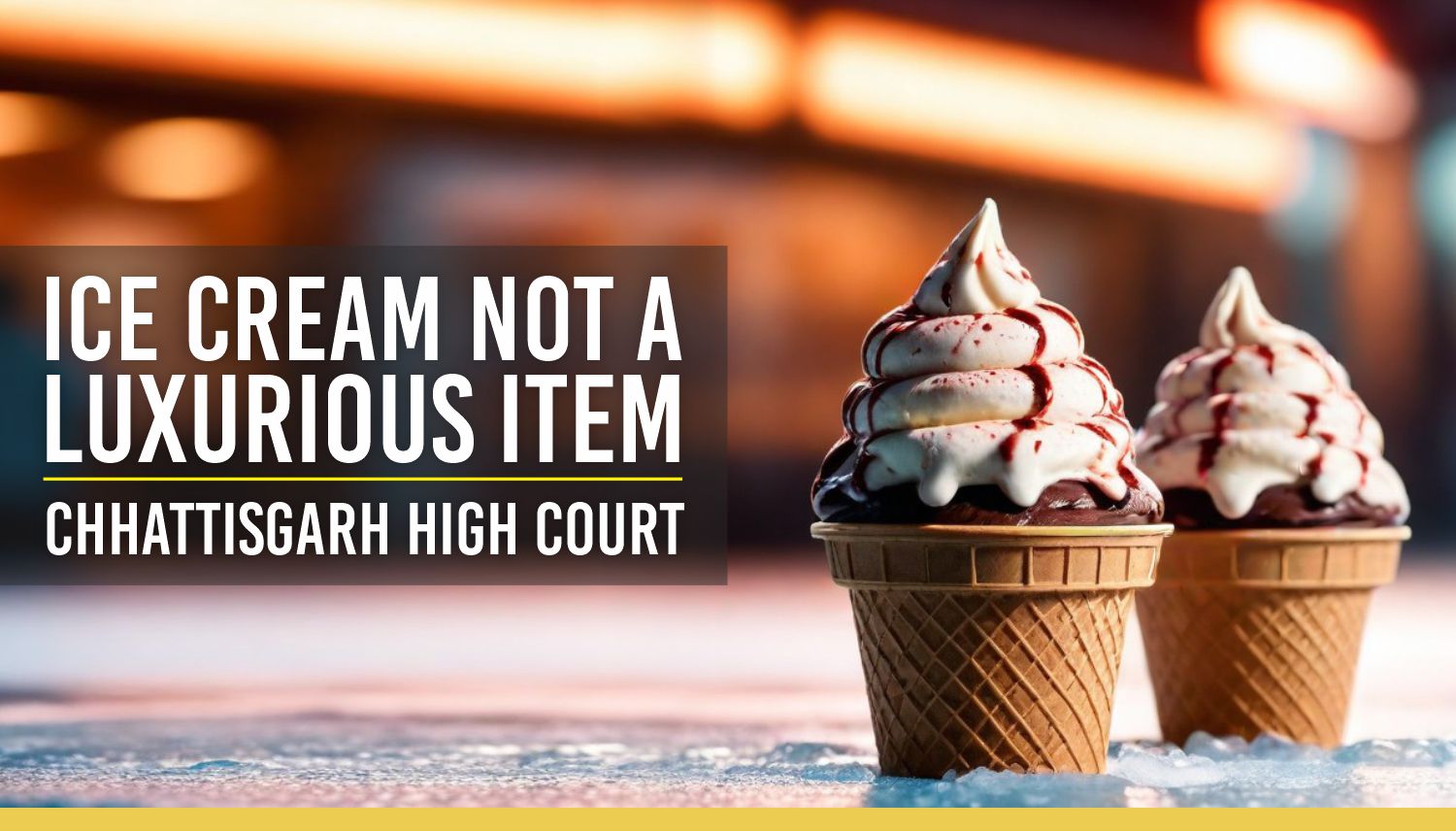Chhattisgarh Court: Ice Cream, Essential Not Luxury

Chhattisgarh Court: Ice Cream, Essential Not Luxury
In a recent development, the Chhattisgarh High Court has issued an order challenging the taxation norms applied to ice cream manufacturers under the Goods and Services Tax (GST) regime. The court has directed the GST Council to reconsider its decision to exclude small-scale ice cream manufacturers from the composition scheme, citing that ice cream cannot be considered luxurious.
History of GST on Ice Cream Manufacturers:
Under the current GST framework, ice cream attracts a tax rate of 18%. However, the recent order by the Chhattisgarh High Court sheds light on the classification of ice cream as a non-luxury item, thus prompting a reevaluation of its taxation.
Details of the Order:
The order, dated April 1, issued by a single-judge bench of Rakesh Mohan Pandey, emphasizes the need for taxation laws to adhere to constitutional principles, particularly Article 14, which upholds the right to equality. The court argues that ice cream is widely consumed across India and cannot be categorized as a luxury item. Hence, the GST Council’s decision to exclude ice cream manufacturers from the composition scheme requires reconsideration.
Composition Scheme and Its Significance:
The Composition Scheme, a feature of the GST system, is designed to assist small and medium businesses by allowing them to pay taxes at a flat percentage of turnover quarterly rather than at the normal monthly rate. Initially, the turnover limit for eligibility in this scheme was ₹50 lakh, later revised to ₹1.5 crore.
GST Council’s Exclusion of Ice Cream Manufacturers:
To curb revenue losses, the GST Council introduced a negative list of items ineligible for the Composition Scheme. Ice cream manufacturers were included among these items, rendering them ineligible for the scheme’s benefits. However, the petitioners argued that the GST Council did not justify this exclusion adequately.
Court’s Ruling and Reconsideration:
The Chhattisgarh High Court stressed the need for the GST Council to consider the socio-economic implications while making taxation decisions. Accordingly, the court directed the GST Council to reconsider the exclusion of small-scale ice cream manufacturers from the Composition Scheme. The council is expected to reach a decision within three months from the order date.
The court’s order critically examines the taxation norms applied to ice cream manufacturers under the GST regime. It highlights the importance of fairness and equitable treatment in taxation policies, particularly concerning small-scale businesses. The outcome of the GST Council’s reconsideration will likely have significant implications for ice cream manufacturers and thereby directly on the end consumers.
